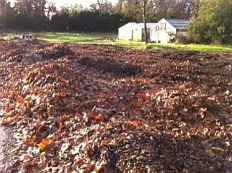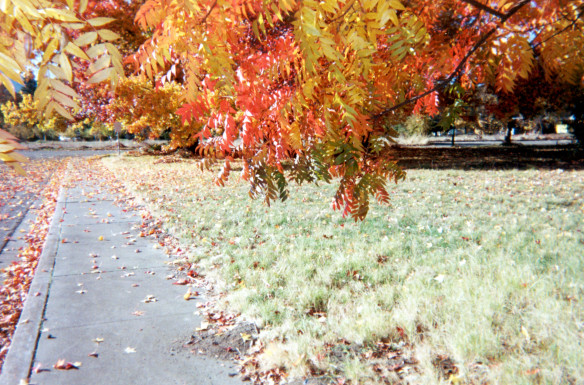Today marks the beginning of my second week as a volunteer and student at the City of Ten Thousand Buddhas. I’m just starting to feel settled in, having found some work to do so that I can make a contribution to the community. One of the monastic trainees tells me that the City is like a jigsaw puzzle: every person has their own contributions to make, and like the pieces of a puzzle, all the gifts fit together to form the working community.

Then we compost the piles of leafs for the organic farm
In the afternoons I’ve been helping one of the monks here edit his English translations of sutras. I find this to be a particularly humbling experience.
In the afternoons I’ve been helping one of the monks here edit his English translations of sutras. I find this to be a particularly humbling experience. I’ve encountered sutras before in classes on Buddhism, but I’ve been astounded by the depth of understanding of Dharma that some of the practitioners have here. It’s such a precious opportunity to be able to sit down with someone who has devoted his life to the practice and study of the Buddhist tradition, and get to have such a detailed conversation about the importance of various ideas and how they might be communicated in English. Again, I am guessing I will find this work to be as important to my learning and development here as my formal practice and study.
Sometimes I wonder about what Buddhist practice was like in other ages. I imagine that at some time in the past history of Buddhist practice, before most people’s lives became so busy and scattered, before so much of the population was collected in cities, and before we became so attached to various machines and media, there was a sense of connection to the earth that was close to most people’s lives. I imagine that this connection to the earth, sustained over time, was a stabilizing force to practice that has become very difficult to find in this age. Just another reason, I think, to keep up with the raking.

